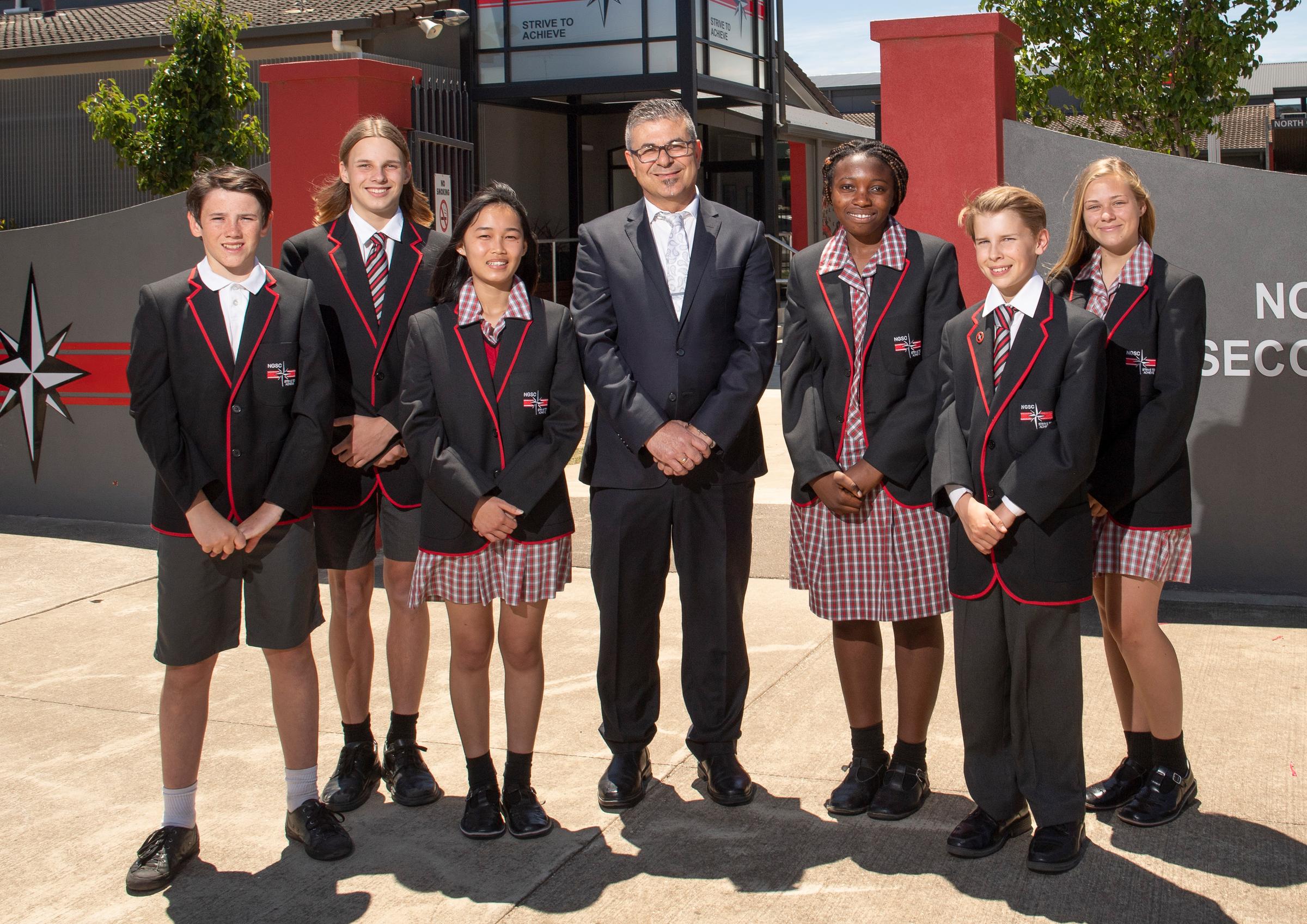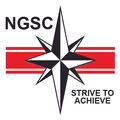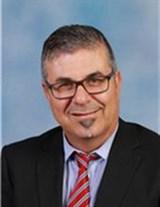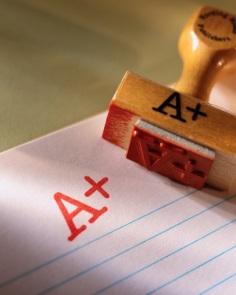
PRINCIPAL'S REPORT
Nicholas Adamou
Principal
2021 Key Dates
| 28 May | Mufti Day - Wear Yellow for Cancer Council |
| 9 June | GAT - Unit 4 Students |
| 7 to 10 June | Years 7 to 10 Exams |
| 11 June | Years 7 to 11 Exams |
| 14 June | Queen's Birthday Public Holiday |
| 15 to 17 June | Year 11 Exams |
| 18 June | Assessment and Report Writing Day (Student Free Day) |
| 21 June | Semester Two Subjects Begin |
| 25 June | End of Term Two - 1:30 pm finish |
Latest COVID19 outbreak measures and lockdown
On Thursday, 27 May, the Acting Victorian Premier, Mr James Merlino, announced new circuit breaker restrictions for Victoria to swiftly address the recent COVID-19 outbreak.
The restrictions have been in place from 11:59 pm Thursday, 27 May, for a seven-day period.
Following advice from the Victorian Chief Health Officer, all Victorian schools will move to a period of remote and flexible learning from Monday, 31 May, to Thursday, 3 June, inclusive.
Friday, 28 May, has been declared a student-free day for all Victorian students, to allow schools time to prepare for the upcoming remote and flexible learning.
Student attendance on site:
Schools will continue to provide on-site supervision for students in the following categories:
Children where both parents and/or carers are authorised workers, who cannot work from home, work for an essential provider and where no other supervision arrangements can be made:
- where there are two parents/carers, both must be authorised workers, working outside the home in order for their children to be eligible for on-site provision
- For single parents/ carers, the authorised worker must be working outside the home in order for their children to be eligible for on-site provision.
Children experiencing vulnerability, including:
- children in out-of-home care
- children deemed vulnerable by a government agency, funded family or family violence service, and is assessed as requiring education and care outside the family home
- children identified by a school as vulnerable, including via referral from a government agency, or funded family or family violence service, homeless or youth justice service or mental health or other health service.
Students attending on site will be supervised at all times by staff with either current Victorian Institute of Teaching (VIT) registration or a Working with Children Check.
Education Support staff can provide direct support to and supervision of students, provided they have access to support from a VIT-registered teacher.
COVIDSafe principles for schools continue to be followed for on-site supervision, including staying home when unwell and getting tested, practising good hygiene and wearing a mask both indoors and outdoors when outside of home. With these COVIDSafe measures in place, schools continue to be safe environments for staff and students on site.
Child safety in remote online learning environments
Parents and carers are responsible for students’ general safety at home or elsewhere.
Principals and school staff will endeavour to:
- identify risks that are reasonably foreseeable for students who are learning at home
- take reasonable steps that are in the school’s control to prevent reasonably foreseeable harm to students
Health and safety advice for schools
COVIDSafe principles for schools continue to be followed for on-site supervision.
The principles for maintaining a COVIDSafe school apply to all Victorian schools: specialist and mainstream, Government, independent and Catholic. They are aligned with Victoria’s COVIDSafe principles for business and acknowledge the unique school setting as both a place of work for staff and a learning environment for children and young people, drawing on local and international literature.
As COVID-19 is a new virus, new scientific research is regularly emerging. Currently, the World Health Organisation suggests that COVID-19 can be transmitted by contact with droplets or airborne aerosols from an infected person, and contaminated surfaces. Airborne aerosols are tiny particles that float in the air. This understanding may change as more research emerges and more is learned about COVID-19.
A combination of strategies is required to minimise transmission risk. No single strategy completely reduces risk and not every measure will be possible in all educational settings.
Where some controls are not feasible, others should be enhanced. Strategies should also be adjusted over time in line with the changing risk of transmission in the community.
Additional measures to promote COVIDSafe activities will be implemented on school premises for students and staff continuing to receive on site supervision, including:
- limiting school access to outside visitors where possible
- reduce mixing between groups
- create workforce bubbles
Face masks in schools
Please see the Department of Health website for the latest face mask requirements as advice may change at short notice.
As directed by the Victorian Chief Health Officer, from 11:59 pm Thursday, 27 May:
School staff and secondary school students aged 12 or older must always wear a face mask at school, including when attending an Outside School Hours Care (OSHC) program, unless a lawful exception applies.
For communication purposes, teachers and education support staff are not required to wear face masks while teaching but, those who wish to do so, can.
Face masks are mandatory for all school staff and school students aged 12 or older when travelling to and from school on public transport and when in taxis or ride share vehicles.
There are a number of lawful reasons for not wearing a face mask, including for staff and students who are unable to wear a face mask due to the nature of their disability. This includes students or staff who have a medical condition, such as a breathing problem, a serious skin condition on the face or a mental health condition.
A face mask must cover the nose and mouth. Face shields, scarves or bandanas do not meet these requirements.
Face masks at external premises
Staff and students attending camps and excursions will be required to meet any face mask requirements of an external provider/venue, including transport providers, unless a lawful exception applies.
Staff and students unable to wear face masks
A combination of strategies are required to limit transmission of COVID-19. Where students and staff are unable to wear face masks, other transmission reduction strategies, such as physical distancing, can be enhanced, noting that any additional or enhanced strategies should be aimed at the whole school or class population.
Child Safe Standards: Creating a safe environment
North Geelong Secondary College is a child safe school/organisation that aims to comply with Ministerial Order No. 870 - Child Safe Standards, which came into effect 1 August, 2016.
The school is committed to the safety and wellbeing of all children and young people and this is the primary focus of our care and decision-making. We have a zero tolerance for child abuse.
NGSC is committed to providing a child safe environment where children and young people are safe and feel safe, and their voices are heard about decisions that affect their lives. Particular attention is paid to the cultural safety of Aboriginal children and children from culturally and/or linguistically diverse backgrounds, as well as the safety of children with a disability.
All NGSC staff members have a responsibility to understand the important and specific role he/she plays individually and collectively to ensure that the wellbeing and safety of all children and young people is at the forefront of all they do and every decision they make.
In addition, the school has a Wellbeing Centre/Hub with a number of full time staff members working with the students ensuring they are building resilience skills and having their wellbeing needs addressed. Together with the Doctors in Schools Program the school Wellbeing Team works with a number of external agencies such as The Geelong Project and other organisations utilising their expertise to improving our students’ wellbeing, ensuring they feel safe and able to be productive in a caring learning and teaching environment.
Child Safety, Code of Conduct
NGSC is committed to the safety and wellbeing of children and young people. Our school community recognises the importance of, and a responsibility for, ensuring our school is a safe, supportive and enriching environment which respects and fosters the dignity and self-esteem of children and young people, and enables them to thrive in their learning and development.
This Code of Conduct aims to protect children and reduce any opportunities for child abuse or harm to occur. It also assists in understanding how to avoid or better manage risky behaviours and situations. It is intended to complement child protection legislation, Department policy, school policies and procedures and professional standards and codes or ethics, as these apply to staff and other personnel.
The NGSC Principal and the Leadership Team fully support the implementation and monitoring of the Code of Conduct, and plan, implement and monitor arrangements to provide inclusive, safe and orderly schools and other learning environments. The NGSC Principal and the Leadership Team also provide information and support to enable the Code of Conduct to operate effectively.
All staff, contractors, volunteers and any other members of the school community involved in child-related work are required to comply with the Code of Conduct by observing expectations for appropriate behaviour below. The Code of Conduct applies in all school situations, including school camps and in the use of digital technology and social media.
Acceptable behaviours
As staff, volunteers, contractors, and any other members of the school community involved in child-related work individually, we are responsible for supporting and promoting the safety of children by:
- upholding the school’s statement of commitment to child safety at all times
- treating students and families in the school community with respect, both within the school environment and outside the school environment, as part of normal social and community activities
- listening and responding to the views and concerns of students, particularly if they are telling you that they, or another child, has been abused or that they are worried about their safety/the safety of another child
- promoting the cultural safety, participation and empowerment of Aboriginal and Torres Strait Islander students
- promoting the cultural safety, participation and empowerment of students with culturally and/or linguistically diverse backgrounds
- promoting the safety, participation and empowerment of students with a disability
- reporting any allegations of child abuse or other child safety concerns to the school’s Leadership Team
- understanding and complying with all reporting or disclosure obligations (including mandatory reporting) as they relate to protecting children from harm or abuse.
- if child abuse is suspected ensuring, as quickly as possible, that the student(s) are safe and protected from harm.
Unacceptable behaviours
As staff, volunteers, contractors, and any other member of the school community involved in child-related work we must not:
- ignore or disregard any concerns, suspicions or disclosures of child abuse
- develop a relationship with any student that could be seen as favouritism or amount to ‘grooming’ behaviour (for example, offering gifts)
- exhibit behaviours or engage in activities with students which may be interpreted as abusive and not justified by the educational, therapeutic, or service delivery context
- ignore behaviours by other adults towards students when they appear to be overly familiar or inappropriate
- discuss content of an intimate nature or use sexual innuendo with students, except where it occurs relevantly in the context of parental guidance, delivering the education curriculum or a therapeutic setting
- treat a child unfavourably because of their disability, age, gender, race, culture, vulnerability, sexuality or ethnicity.
- communicate directly with a student through personal or private contact channels (including by social media, email, instant messaging, texting, etc) except where that communication is reasonable in all the circumstances, related to school work or extra-curricular activities or where there is a safety concern or other urgent matter
- photograph or video a child in a school environment except in accordance with school policy or where required for duty of care purposes
- in the school environment or at other school events where students are present, consume alcohol contrary to school policy or take illicit drugs.
Semester Exams
As we are coming closer to the end of Semester One and the Semester examination period, please note the following; Semester Two, will begin on June 21 and Semester exams for all Year 7 to 11 students will take place in Weeks 8 and 9 (7 June to 17 June). On June 18, students will not be required to attend classes (Student Free Day) as Teachers will be working on Assessment and Reporting.
Also, all Year 12 students and Year 11 students who are currently undertaking a Unit 3 VCE subject will be expected to undertake the GAT (General Achievement Test) examination on Wednesday, 9 June.
Details about the exams timetable for all Year Levels will be distributed to all students via their Year Level, Sub-School Leaders and Compass.
North Geelong Secondary College has implemented Semester exams for a number of years now and Semester examinations are well embedded in our school calendar and culture. The formal examination structure creates an opportunity to provide students with skills in examination preparation, practise and personal experience in the valuable life skill of undertaking formal testing. Regular opportunities must be provided through both formative and summative assessment for students to develop examination techniques and to receive feedback on their performance.
Our school community prides itself on our structure examinations, ensuring that;
- students develop confidence and skills in exam techniques and settings
- students gain experience in formal testing situations that may be useful in later life
- a home/school study culture of regular revision and test preparation is instilled
- students develop subject specific exam skills
- the learning and teaching culture of the school amongst the students, parents and wider community is reinforced
- an additional assessment tool is provided for teachers and students.
Wishing all students Good Luck with the upcoming exams.
The GAT Exam
Wednesday, 9 June 2021
The General Achievement Test (GAT) is a three hour test of general knowledge and skills in;
- Written communication
- Mathematics, Science and Technology
- Humanities, the Arts and Social Sciences.
The GAT is an essential part of the VCE assessment process. While it is important that all students attempt the GAT, the test is not part of the graduation requirements and doesn't count towards VCE results. However, the GAT results may play a very important part in determining the final assessment for the VCE. It also plays an important role in checking that school assessments and examinations have been accurately assessed. The GAT is used because its results are a good predictor of the final assessment for VCE students. If a student has done well in the GAT, they are likely to do well in their other assessments.
Students enrolled in Units 3 and 4 of any VCE study, whether in Year 11 or Year 12, must sit the GAT, unless they are exempted by the Victorian Curriculum Assessment Authority (VCAA).
Tips on doing the GAT, for the students:
- Read all the information carefully
- Read each question and try to pick out the key ideas and information
- For the multiple choice questions, try to quickly reject choices that appear to be wrong, then read the question again and select the answer most likely to be right
- Attempt all questions and do not spend too much time on any one question. Questions can always be revisited.
Students GAT results are reported with their Statement of Results.
For more information, see: General Achievement Test
Show me how it’s done!
Research is showing that we learn very effectively when we have people show us how to perform a task and involve us directly in it. Anyone trying to connect the iPhone or iPad to the flat touch/interactive screen TV set will also agree that it is often much more effective to have someone show you how to do that, than to decipher the manual yourself. Parents/Guardians and in particular mothers, model this mode of teaching by showing their children how to do a myriad of things as they are growing up.
At NGSC, it is important to provide students with a range of “ways of learning” and to have outside experts, teachers and students act as mentors and role-models to help students see “how it’s done” – this is a great and powerful tool.
In particular, opportunities for younger students to see older role models such as Year 11 and 12 students are a real feature of our school. Also, the Excellence in Sports Program (Soccer and Football), partnership with the Geelong Football Club and Victoria Police enhances self-discipline, great role modelling and confidence to our students by high level football and soccer players, AFL umpires and Victoria Police. This program places strong emphasis on “Show me how it’s done”. These sports people and the Police Officers work with our Excellence in Sports Program students who learn more effectively by others showing them how. Our educational setting, our school culture and our mindset allow this to occur naturally and it is such an asset in developing confident, capable young adults who are ready to be useful and employable global citizens.
Currently, our Student Leaders (School Captains & SRC) are enjoying the role of modelling to the rest of the student body through many extracurricular activities, such as; performing arts, song and dance, organising sporting events, coaching junior sporting teams, taking the lead in school human and environmental issues and a number of other academic activities.
Picking Up and Dropping Off your children around schools
For the safety of children, parents/guardians are reminded and strongly encouraged to take care and obey parking signs when picking up or dropping off children around the school. Council’s Parking and Information Officers regularly patrol school areas during start and finish times and motorists detected breaching parking regulations risk being issued with a Penalty Infringement Notice.
Remember, as soon as you stop to let your children in or out of the car, you are deemed to be parked. You do not have to leave your car or turn the engine off to receive a fine.
At children’s crossings, you must remain stationary at the stop line while any person (including an adult or the supervisor) is on the crossing or the stop sign is displayed. Do not let your child out at this time; ensure that they wait until you are safely and legally parked.
If you breach a parking regulation the Parking and Information Officer assigned to monitor our school crossing will usually record your registration number and details, and the Penalty Infringement Notice will be posted to the registered owner of the vehicle within the next three days.
Also dropping off or picking up children in the staff car park is prohibited and parents/guardians should NOT be parking in the staff car park at any point in time. This behaviour places our students at great risks as they should not be walking through the staff car park area.
Please ensure you adhere to the parking regulations around schools and the school’s expectations, so that all children are safe and you avoid running the risk of a Parking Infringement.




